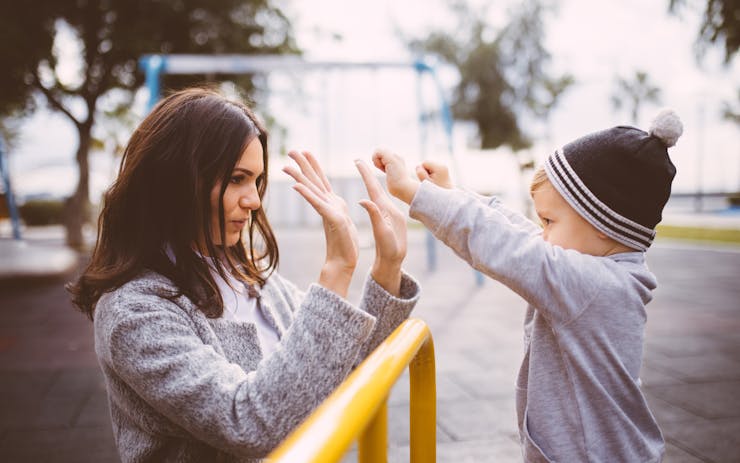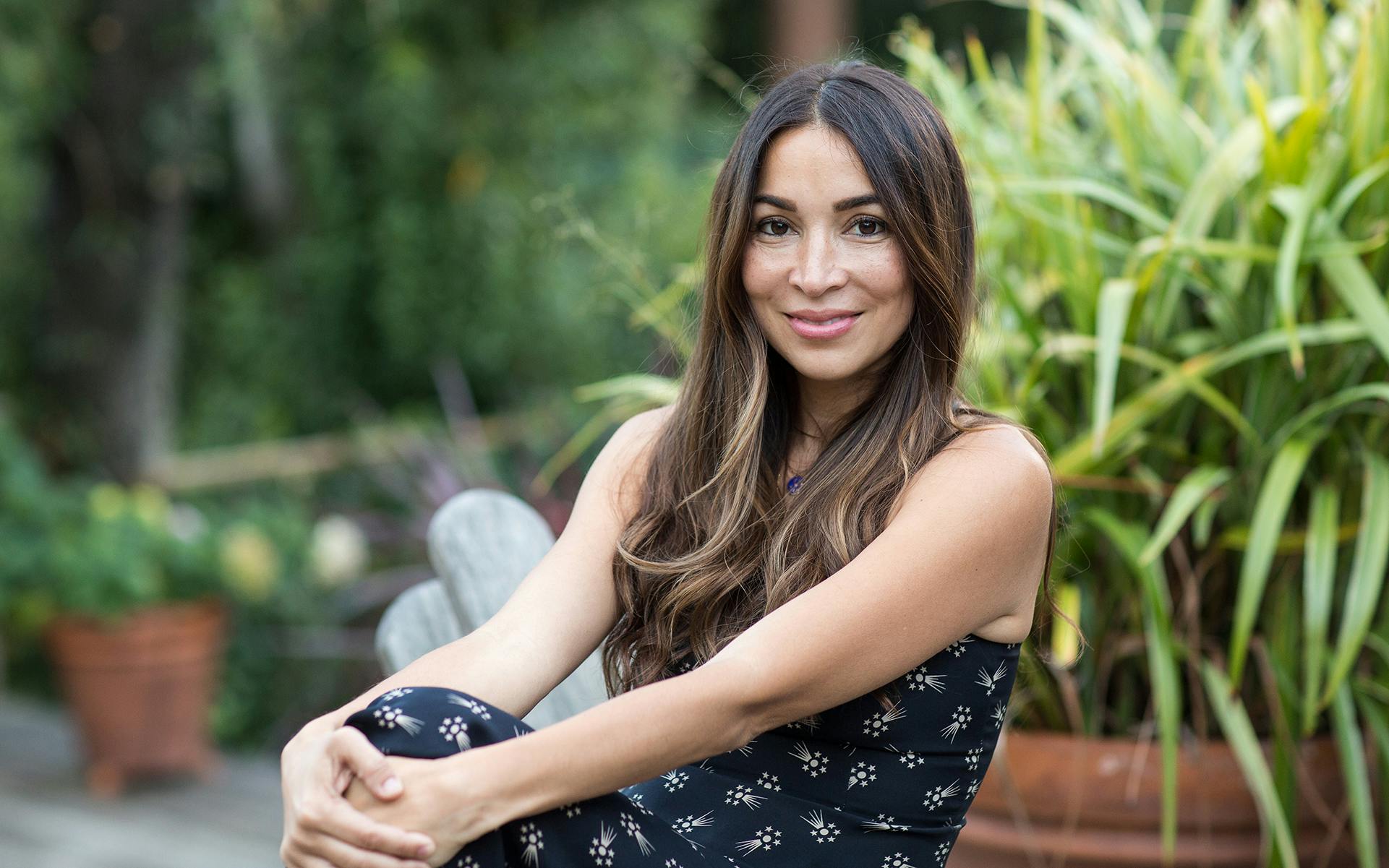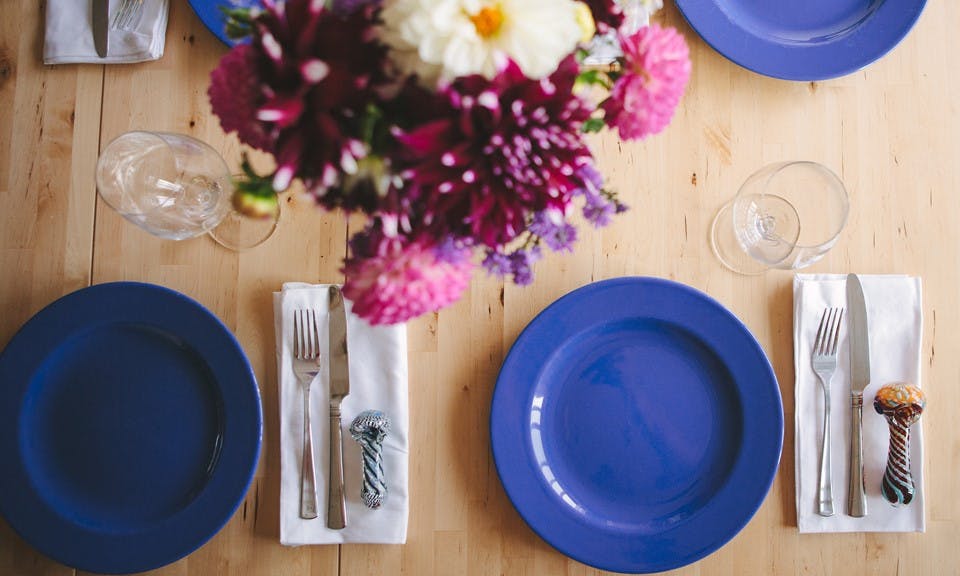As a cannabis advocate, I’m reasonably concerned by the social stigma around parents who use the plant. This is partially because some of my loved ones happen to be parents who use cannabis, but it’s also because I don’t think it makes sense to demonize responsible adults for enjoying marijuana. And contrary to popular opinion, successful cannabis consumers aren’t difficult to find.
People who don't consume cannabis have a fundamental misunderstanding about what it does to somebody who consumes it.
In fact, according to a study from the cannabis culture website Civilized, adults who consume cannabis aren’t just more likely to be employed than non-consumers, they’re more likely to hold supervisory roles at work. They’re also more likely to be homeowners with children, according to the Pew Research Center. Yet cannabis arrests in the United States outnumber those of violent crimes.
I may never decide to have children of my own, but it’s important to shine a light on parenting and cannabis whether I do or not. I spoke with the following people on the topic.
- Derek Riedle, founder and publisher of Civilized. As an outspoken cannabis consumer and father of two young boys, Riedle knows what it means to be a good parent who enjoys a bowl or two.
- Vanessa,* a stay-at-home mom who uses cannabis for both herself and her young daughter. Her daughter has been living with an undiagnosed neurological disease since infancy.
- Enrico Moses, another cannabis-consuming father and the CEO of High Standards, a Los Angeles-based marketing agency bringing sophisticated, informative events to California’s cannabis capital.
- Two women who are working to make the cannabis industry as parent-friendly as possible: Kristi Knoblich, COO of Kiva Confections, and Brittnie Green, head of events and outreach at dosist (formerly hmbldt).
- Ashley Spivak, a doula, reproductive health advocate, and co-creator of the wellness event Cycles + Sex.
Common Misconceptions on Cannabis and Parenting

(darrya/iStock)
“The most amazing thing to me is that people who don’t consume cannabis have a fundamental misunderstanding about what it does to somebody who consumes it,” Riedle tells me. “Cannabis consumers feel that they enjoy life a little bit more, they’re more active, they’re more social, they’re more creative … non-users just don’t understand that. They don’t think these things happen.”
Riedle’s right. Misconceptions around cannabis and the people who use it are deeply embedded in our society, and that won’t change overnight. As Spivak puts it, “The image of the person who uses these plants, the side effects like laziness and brainlessness … This is still what we associate with cannabis.” In Moses’ opinion, “There has been so much negative propaganda around this plant that it will take years for people to completely unlearn these projections.”
Misconceptions are doubly problematic for parents who use cannabis as medicine for not only themselves, but also for their kids.
Luckily, the internet already abounds with essays and articles in which writers challenge negative stereotypes about cannabis and cannabis users. (Hell, I’ve a written a few of them.) Further, recent polls show that cannabis consumers in the US tend to work out as much or more than non-users, and we typically have more active social lives and obtain higher levels of education as well. Still, misconceptions persist, and nowhere is this more pronounced than when it comes to parents who use cannabis.
This is doubly true for parents like Vanessa, who use the plant as medicine for not only themselves, but for their kids as well. “She can’t walk, she can’t speak, she can’t do anything on her own,” Vanessa says of her now-four-year-old daughter. “For her condition there is no option. There is no treatment, there is no clinical trial she can get into—nothing. So [cannabis] really was, and is, our only hope of lulling some of her conditions from her disease.”
Even though she lives in California—where cannabis was legalized for medical use in 1996—Vanessa says her daughter’s neurologist was against pediatric cannabis use from the start. After doing their own research, Vanessa and her husband decided to try it anyway. “We took the leap,” she recalls. “We found a dispensary that we felt was very professional and much more catered to medical needs versus recreational.”
Cannabis works so well for their daughter that she hasn’t missed a dose since that first try. “Her body is constantly moving and nothing can soothe her, and when she takes cannabis, it’s like her body just relaxes,” Vanessa says. “I can’t tell you how amazing it is to be able to hold my daughter and her body feel calm instead of just wiggling out of control. It’s the best feeling.”
Like Becoming a Parent, Cannabis Consumption Is a Personal Choice

(darrya/iStock)
Vanessa says she keeps her own cannabis use as discreet as possible, and prefers micro-dosing with edibles like Kiva’s Terra Bites over smoking joints or hitting bongs. But Vanessa also doesn’t feel like it’s healthy to hide her cannabis use from her son, so she and her husband have always been honest with him. “He’s only seven, so we haven’t gotten to the real marijuana talk yet,” Vanessa says. “Right now what’s working well for our family is, ‘This is sissy’s medicine, this is mom’s medicine.’”
Unfortunately though, thanks largely to decades of misinformation about what cannabis does to the brain, cannabis-consuming parents are often stereotyped as neglectful, lazy, messy, selfish, irresponsible, and emotionally unstable. Many who don’t consume cannabis themselves incorrectly assume that parents who do will actively influence their kids (and other parents’ kids) to do the same. But the cannabis-using parents I spoke with say this couldn’t be further from the truth. “I consider cannabis to be for mature adults, not for the young mind, so my kids know I have a zero-tolerance policy for them until they’re of age,” Riedle says.
Cannabis helps me self-reflect, which ultimately makes me a better person and a better parent.
Countless other parents who openly use cannabis, like long-time activist Diane Forbacher, have echoed these sentiments. So while it might be fair to assume that some parents who consume cannabis have an open dialogue with their children about it, the idea that cannabis-consuming parents hope their kids will light up with them someday is completely unfounded. As Riedle points out, educating your children is not the same thing as enabling them. “I’m not trying to grow young men who will become adult cannabis users,” Riedle tells me. “But if they choose to do that, I want them to feel free to do so in a responsible way, so I’m empowering them with knowledge.” Riedle says whether it’s sex or alcohol or cannabis, he doesn’t think there’s any value in kids being in the dark.
Some cannabis-consuming parents aren’t open about their consumption with their kids, and that’s OK too. Back in 2012, the New York Times published an essay called “Pot for Parents,” in which art dealer and father of three Mark Wolfe detailed how back pain and anxiety led him to become a “card-carrying medical cannabis patient” at the age of 44. The medicinal qualities of cannabis aren’t the main focus of his piece, though: Instead, Wolfe wrote primarily about how cannabis helps him be a more loving and attentive father. As he put it, “I find the time I spend with my children to be qualitatively different and simply more fun when I take my medicine (always in private, never in front of them, never too much).”
Shop highly rated dispensaries near you
Showing you dispensaries nearSince Wolfe’s op-ed was published, more and more parents have stepped out of the cannabis closet to share similar stories of their own. In 2014, the Guardian got over 200 people to share their thoughts on cannabis and parenting, and the general consensus was overwhelmingly positive. In 2015, Cosmopolitan contributor Lea Grover wrote about how cannabis has helped her manage anxiety since her twins were infants. “Genuine, honest-to-God, parenthood-induced anxiety is a real thing,” she wrote. “In my case, marijuana is my anti-anxiety drug of choice.”
Riedle says even though he’s not one to consume around his kids, he still feels like cannabis helps him be a better father. “I find the joy in things a little bit easier, I’m a little less stressed, I’m a lot more creative … Overall, cannabis makes me a better parent because it makes me a better human being,” he says. Moses agrees: “I think that [cannabis] helps me self-reflect, which ultimately makes me a better person and a better parent.”
Wine Moms vs. Weed Moms

(Weekend Images Inc/iStock)
Vanessa says going to the dispensary feels no different to her than going to the market for a bottle of wine, but this sort of normalcy around moms using cannabis just isn’t represented in mainstream culture. As any consumer of American media knows, “wine moms” are all over both small and big screens. Whether it’s Modern Family’s hardworking, painfully organized Claire Dunphy, or goofy, affectionate Linda from Bob’s Burgers, positive representations of mothers who drink wine responsibly (and daily) are easy to find. But TV moms who consume cannabis in the same way are virtually nonexistent. American television’s most famous cannabis mom is arguablyWeeds’ Nancy Botwin, and it’s safe to say she’s a fairly problematic character.
In reality, though, moms and dads all over North America responsibly use cannabis instead of alcohol for a number of reasons—from managing stress to making laundry more fun. Back in 2012, a Jezebel writer anonymously wrote about why she’s always preferred weed to wine, and why that preference didn’t change when she became a mother: “It doesn’t have the calories or the hangover,” she wrote. “And I’ve never had a glass of wine and been captivated by children’s books like I have after smoking a bowl.”
Wine moms are all over both small and big screens ... TV moms who consume cannabis in the same way are virtually nonexistent.
Stories like these are part of the reason Knoblich and her husband, Scott Palmer, started Kiva Confections with parents in mind. “What we aimed to do was give people control,” Knoblich says. “If you’re a parent, if you’re a career person, if you have any sort of responsibilities, then you don’t have the luxury of being experimental with cannabis.” Knoblich says Kiva’s Petra Mints have become particularly popular with moms because of their low-dose format: “I think it’s just so perfectly cut out for mothers and parents because it gives you that minimum effect, but while you still gain all of the positives.”
Green had similar things to say when I asked for her thoughts on moms using cannabis as a wellness aid. “Whether it be [dosist] or any product, I think that women should have the alternative rather than a pill that their doctor prescribed them,” she says, explaining that while she personally understands the necessity of prescription drugs, swapping out Xanax and antidepressants for dosist’s calm pen changed her life.
Green is so passionate about using cannabis as medicine that she recently helped her company host a cannabis event for Fashion Mommas—a members-only network for influential mothers who work in fashion and creative industries. “I’ve followed up with a couple of the Fashion Mommas,” Green tells me, “and they were like, ‘This has been a life-changer. I use [cannabis] instead of going right for a bottle of wine and I feel like I’m more present with my kids and my family.’” As Spivak points out, “The better parents feel, generally the better they can take care of others.”
‘Becoming a Parent Led Me to Cannabis’

(StockRocket/iStock)
In Riedle’s case, having a family is actually what led him to reunite with cannabis in the first place: Although he enjoyed smoking in college, he was more likely to drink than to vape before his two boys came along. “It’s funny, I don’t think of it this way very often, but becoming a parent sort of led me to cannabis,” Riedle explains. “I’m not saying, like, that old euphemism ‘my kids drove me to drink’—my kids drove me from drinking to cannabis.”
Riedle says when it became too difficult for him to drink regularly and still maintain a healthy lifestyle, he took the advice of a fellow father and started smoking more cannabis. Now Riedle only drinks a few times a year, and he says it’s actually the contrast with alcohol and cannabis prohibition that drives a lot of his thinking. “I think it’s completely illogical that it is OK for households to have alcohol for adult use and not have cannabis for adult use,” he says. “And that applies whether you’re a parent or not.”
*Last name withheld for privacy.







